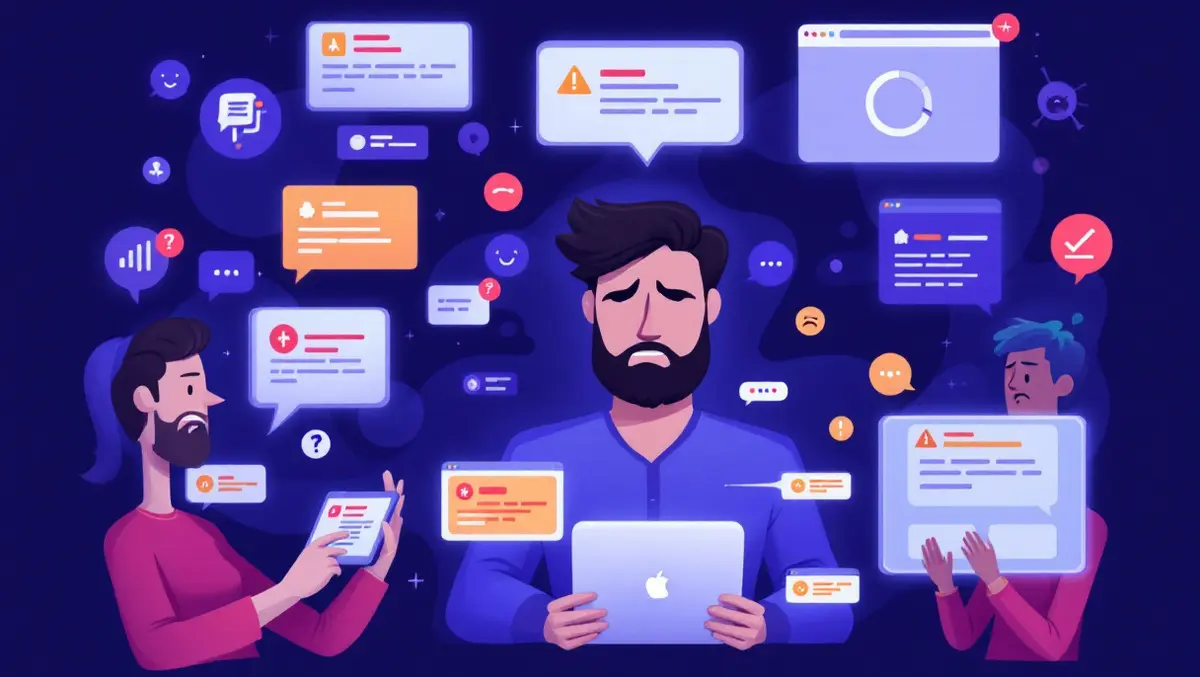
Consumer frustration, poor digital experiences on the rise
Research from Conviva has found that consumer frustration with poor digital experiences is becoming increasingly common, with significant consequences for businesses.
The company's 2025 State of Digital Experience Report indicates that 91% of consumers reported facing frustrating digital issues in the past year, and fewer than 60% are satisfied with the digital services they use. According to the study, this dissatisfaction has direct business implications, including lost revenue, lower customer retention, and reputational harm.
The report, which draws on data from 223 million digital service user sessions globally as well as a survey of 4,000 consumers in the US and UK, suggests that poor digital experiences affect both customer loyalty and consumer emotions. Almost one-third (30%) of respondents said a poor online experience left them in a bad mood, while 11% reported feeling physically unwell due to digital frustration.
Consumer response to digital frustrations is increasingly severe. Among those surveyed, 39% said they experience 'digital rage'—anger due to digital service failures—more frequently than they did two years ago. The emotional impact of unreliable digital services also includes the abandonment of purchases: 55% of consumers leave without completing a purchase, 50% switch to a competitor, and 39% cancel subscriptions when they encounter problems online.
The data reveal that patience is dwindling among online users. For example, one in four respondents said they would abandon an online purchase if unable to complete the transaction in ten seconds. Common irritations cited include broken webpages or links, unexpected service crashes, and login difficulties.
Time spent engaging with digital services is closely linked to perceived experience quality. If the proportion of poor digital experiences on a platform rises from 1% to 2% of total use, average time spent by customers drops by 42%. Conversely, those encountering at least 99% positive experiences spend 6.5 times longer on a service.
"Consumer expectations for seamless digital experiences are skyrocketing, but many businesses aren't keeping pace. In today's attention economy, customers have zero tolerance for digital friction. Distracting them with more 'digital to-dos' or disrupting them with issues sends their attention, money, and loyalty straight to competitors. More marketing and new features won't suffice; flawless digital service performance for all customer cohorts is critical. Companies that fail to deliver exceptional experiences for every customer will face increased churn, revenue losses, and lasting damage to their brand reputation," Keith Zubchevich, Chief Executive Officer at Conviva, commented.
Nearly half (49%) of consumers believe that companies do not care when their customers have a poor digital experience. The report establishes what it describes as a "patience equation," where every 1% increase in negative digital engagement results in a customer being 1% less likely to return to the service within a week. Despite the risks, high-quality digital services do retain customers, with 93% of consumers saying they would return after a great experience.
The findings also extend to the hospitality sector. 41% of consumers said they would be more willing to overlook negative hotel reviews if the hotel had delivered a positive digital experience during the research and booking phase.
"It's not just about finding and fixing outages. Businesses must address the 'thousand little cuts'—repeated issues impacting distinct groups of customers that quietly drive them away. Customer complaints are increasingly visible on social media, yet outages are reducing. This means many customers experience friction points and abandon purchases without businesses even knowing. Empowering teams with real-time performance analytics and automation to pinpoint and resolve issues at every touchpoint in the customer journey helps deliver seamless experiences, protect revenue, and turn customer experience into a strategic advantage," Zubchevich added.
The research was based on a survey of 4,000 consumers and included analysis of 223 million user sessions representing 258 billion digital events from Conviva's platform in early 2025.


